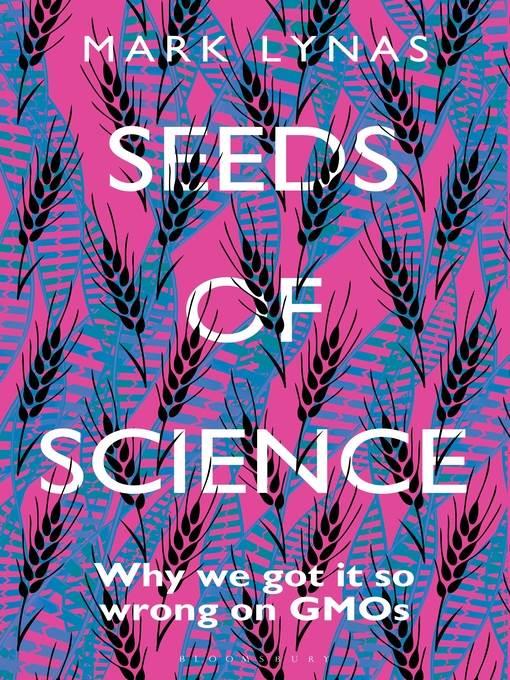
Seeds of Science
Why We Got It So Wrong On GMOs
- اطلاعات
- نقد و بررسی
- دیدگاه کاربران
نقد و بررسی

March 26, 2018
Science writer Lynas (Nuclear 2.0) relates his personal journey from anti-GMO activist to outspoken proponent of genetically modified foods in this thoughtful examination of the issue. Although he makes a forceful case that activism against GMO products is misguided at best and disingenuous at worst (citing a campaign in Uganda that used photoshopped images of mutated children), Lynas is at his most powerful discussing the struggle between science and ideology. He describes his intellectual transformation when he decided to survey scientific opinion and discovered many reputable institutions that supported the genetic modification of food sources, terming this period “my own personal Enlightenment.” As the evidence for the safety of GMOs became increasingly convincing to him, Lynas found he had a personal choice to make: “I could betray my friends, or I could betray my conscience.” Lynas observes that the debate has very real consequences for people and the environment, criticizing NGOs for limiting access to GMOs for farmers in developing areas that lack food security. He also charges activists with inadvertently increasing pesticide usage, declaring, “When ideology trumps science... the environment is harmed, people get sick, and some even die.” His book will be thought-provoking reading for anyone interested in this contentious public health question.

April 15, 2018
An environmental science writer takes a deep look at the ramifications of genetically modified organisms over the past four decades.In the 1990s, Lynas (Nuclear 2.0: Why a Green Future Needs Nuclear Power, 2014, etc.) was not content to just march against GMOs; he would wade into test plots at night, swinging a machete at the Frankenplants. However, he admits that he didn't really know a strand of DNA from a corn tassel, so he began intensive research on GMOs. Fortunately, by the late 1990s, there was a large body of work on GMOs, plenty of it suggesting a healthy side to their nature. In the 1980s, writes the author, "we were against the whole forward march of scientific research in the area of biotechnology and the idea of technological control over intimate life processes such as reproduction." As Lynas dug deeper into the literature--from Greenpeace to the National Academy of Sciences, respected peer-reviewed journals to the "low-ranking journal called Environmental Sciences Europe"--he found compelling examples of GMOs doing good, especially regarding the diminished need for cropland and increased production with less insecticide intervention. The author moves back and forth through time, charting changes in attitude as the results came in. For example, in 1974, the NAS voiced "serious concern that these artificial recombinant-DNA could prove biologically hazardous." Then in 1987, they claimed that the risks associated with GMOs were "the same as those associated with the introduction of unmodified organisms." Lynas is aghast that biosafety laws have been stymied by anti-GMO advocates in famine-scorched lands. He is also wary of pesticide and herbicide use and the costs associated with GMOs for poor farmers. He understands patents as a spur for research, but he is appalled that nearly half the corn crop--monocultured, government-supported--goes to biofuels.In this well-tempered, smoothly written book, Lynas calls for balance. Suspicion of all scientific discoveries will lead to further famine and global warming, while unscrutinized experimentation is prone to folly and corporate profit-gouging.
COPYRIGHT(2018) Kirkus Reviews, ALL RIGHTS RESERVED.




دیدگاه کاربران